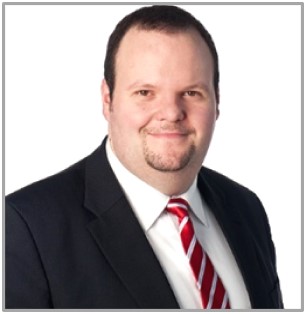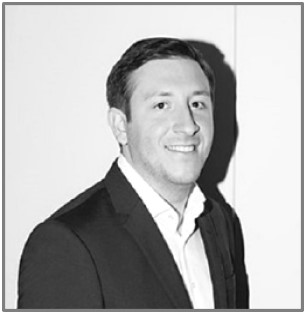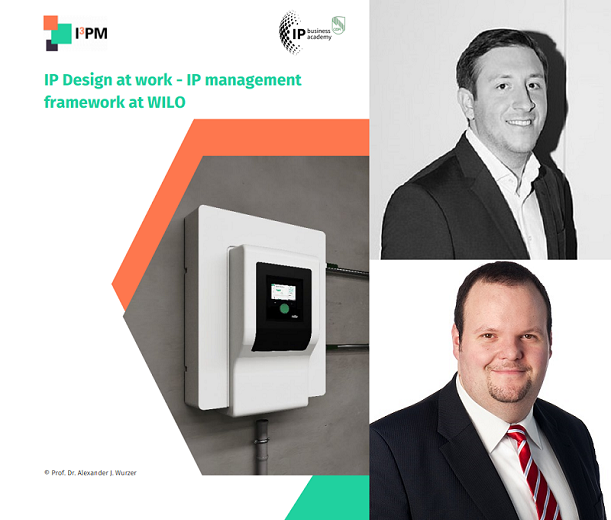Achieving sustainable business success: IP Management the WILO way
At WILO, intellectual property (IP) management is more than just an administrative function; it’s a strategic cornerstone for sustainable growth and competitive advantage. WILO’s proactive IP strategy focuses on four core activities: Protect, Detect, Respect, and Impact. These activities serve as the foundation for how WILO leverages its IP, both offensively and defensively, in the present and for the future. Through this comprehensive approach, WILO not only safeguards its innovations but also positions itself as a market leader in the evolving technological landscape.
This case study illustrates how WILO’s IP framework ensures that intellectual property actions are meticulously planned, implemented, and continuously evaluated to meet both IP objectives and business goals. As WILO shifts focus on digital services and ventures into new technological territories, this robust IP management system equips the company to navigate challenges from emerging competitors and evolving IP landscapes. With its solid framework, WILO is well-positioned to adapt to future developments and maintain its leadership in both mechanical engineering and digital innovation.
Protect
The “Protect” component of WILO’s IP strategy is all about creating future returns on innovation. Rather than relying solely on IP as a by-product of research and development, WILO actively pursues intellectual property with specific strategic goals in mind. This approach involves collaboration across all departments and emphasizes generating valuable IP that positions the company ahead of its competitors. This proactive stance ensures that WILO can continuously innovate, aligning new developments with its long-term business objectives.
Detect
WILO’s “Detect” strategy involves monitoring external developments, particularly the activities of competitors and legislative trends, to anticipate emerging technologies. By keeping a close eye on key trends like IoT and AI, WILO ensures that its products stay at the cutting edge. This proactive approach not only enables the company to innovate but also to adapt quickly to the evolving market. Incorporating such features into WILO’s offerings ensures the company remains a leader in its field, with a focus on future readiness.
Impact and Respect
The “Impact” and “Respect” components focus on the value-oriented management of WILO’s IP portfolio and ensuring compliance with the IP rights of others. By rigorously managing and enforcing its IP rights, WILO maintains a strong market presence and actively combats counterfeiting. At the same time, respecting the IP rights of competitors is crucial in today’s digital age, where new technologies like 3D printing and AI bring new players into the competitive landscape. Through its commitment to both IP protection and compliance, WILO not only safeguards its operations but also fosters a culture of respect and stability within the industry.
About the case study
An expert interview with Co-Author Dr. Matthias Rabbe (Head of IP at WILO SE) serves as basis for the data collection as well as the evaluation of WILO’s IP management framework in view of industry standards such as ISO 56005 and DIN 7700. The evaluation was conducted by Max Link and was reviewed by Prof. Dr. Alexander Wurzer.
👉 https://i3pm.org/task-force-industry-case-study-program/
Authors
 Dr. Matthias Rabbe, Head of Intellectual Property at WILO SE
Dr. Matthias Rabbe, Head of Intellectual Property at WILO SE
Dr. Matthias Rabbe has been Head of Intellectual Property at WILO SE since 2016, where he heads the central IP department. Before joining WILO SE, he worked for several years as a lawyer in an international commercial law firm in Düsseldorf and advised clients in national and multinational patent disputes, particularly in the fields of information technology and mechanical engineering. He studied law in Osnabrück, where he also completed his doctorate with a thesis on intellectual property law. He is co-author of the Cohausz/Rabbe/Wißgott handbook on intellectual property law.
 Max Link, German and European Patent Attorney Trainee at IP law firm Bardehle Pagenberg
Max Link, German and European Patent Attorney Trainee at IP law firm Bardehle Pagenberg
There he focuses on the prosecution and litigation of computer-implemented inventions (“software patents”). He studied Computer Science at the University of Ulm. Prior to joining Bardehle Pagenberg, Max worked as a Software Engineer for private companies in the automotive and pharmaceutical industry acquiring extensive experience in the areas of machine learning, mixed reality and cloud computing. Max is also author of the “European Software Patents Knowledge Base”.



